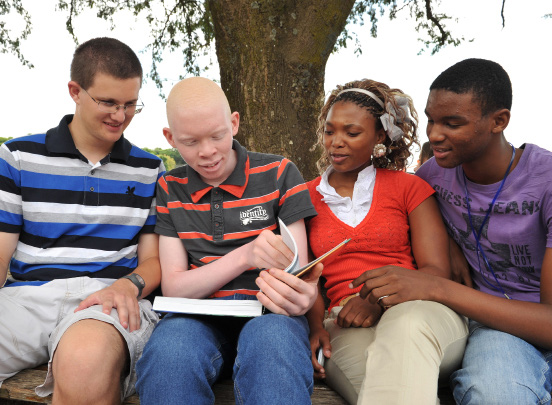Improving access to higher education
Improving access to higher education andileGovernment is committed to providing quality, accessible, affordable, and diverse post-school education and will ensure that academically capable and financially needy South Africans are not left behind.
This is according to Higher Education and Training Minister Blade Nzimande, who recently delivered the department’s Budget Vote in Parliament. The Minister noted that government has allocated billions of rand to the National Student Financial Aid Scheme (NSFAS) to help over 400 000 students pursue their studies. “R4.57 billion is allocated to the NSFAS in 2016/17, made up of R2.54 billion to ensure that 71 753 students who were not, or insufficiently, funded in 2013 to 2015 can pay their debts, and R2.03-billion to ensure that these students and poor students entering universities for the first time can study,” he said.
After President Jacob Zuma announced a zero percent fee increase for institutions of higher learning following nationwide student protests against the cost of education, universities were left with a shortfall of R2.3 billion. “We have provided R1.9 billion of the R2.3 billion shortfall resulting from the agreement. We have reprioritised over R5.7 billion over [the next three years] to universities to ensure that the fee freeze in 2016 does not lead to unmanageable fee increases in the future,” explained the Minister.

The NSFAS allocations will amount to a 47.3 percent increase in baseline funding for NSFAS in 2016. The Minister said that this, together with the other NSFAS funds, will this year put 205 000 students through university, and another 200 000 through Technical Vocational Education and Training (TVET) colleges. “That is a total of 405 000 students receiving government support, a massive achievement by anybody’s standards.
“We also have a plan for the “missing middle”— students whose family income lies above the NSFAS threshold, but who still can’t afford university. We aim to test our new model in 2017 and fully implement it in 2018,” he said.
The Presidential Commission is investigating the feasibility of fee-free education for university and TVET students, the Minister added.
Student Accommodation
Minister Nzimande added that he would launch the Student Housing Infrastructure Programme this year to address the challenges of student accommodation. He said the department would outline its long-term sustainable programme using funding models and innovative building technologies to provide secure and affordable residences when it convenes the Student Housing Symposium in June. “In the meantime, we are working with the Minister of Public Works, Thulas Nxesi, to identify underutilised or unused government buildings suitable for conversion into affordable and comfortable student housing for both universities and TVET colleges.”
Promoting Healthy Lifestyles
Deputy Minister Mduduzi Manana said to promote healthy lifestyles among the student community, the Department of Higher Education and Training has a campaign called First Things First, administered by Higher Education AIDS (HEAIDS), which provides comprehensive health and wellness services.
This ranges from HIV testing and TB screening, reproductive rights, contraception, maternal health, breast and cervical cancer and lifestyle diseases, among others. He said the number of students that had come forward for testing had increased over the past year. “The programme has covered 174 000 students and workers in 2015 alone, and students who tested for HIV are 79 percent more than those who tested the previous year,” the Deputy Minister noted.
He added nearly 25 million scented male condoms had been distributed in the post school education and training system.
Deputy Minister Manana said the programme was recently recognised as one of the best in the continent, and that the department intends expanding it even further in this financial year. The HEAIDS continuous counselling services were helping students to cope with their HIV-positive status, he added. The Deputy Minister said a student dropped out of university after she tested HIV-positive through the First Things First campaign and couldn’t come to terms with her HIV status. But through HEAIDS’s counselling and support services, she was able to continue with her studies and has one year left before she finishes. “She is one of the ambassadors of First Things First, encouraging students to know their status and giving them counselling and support,” he added.